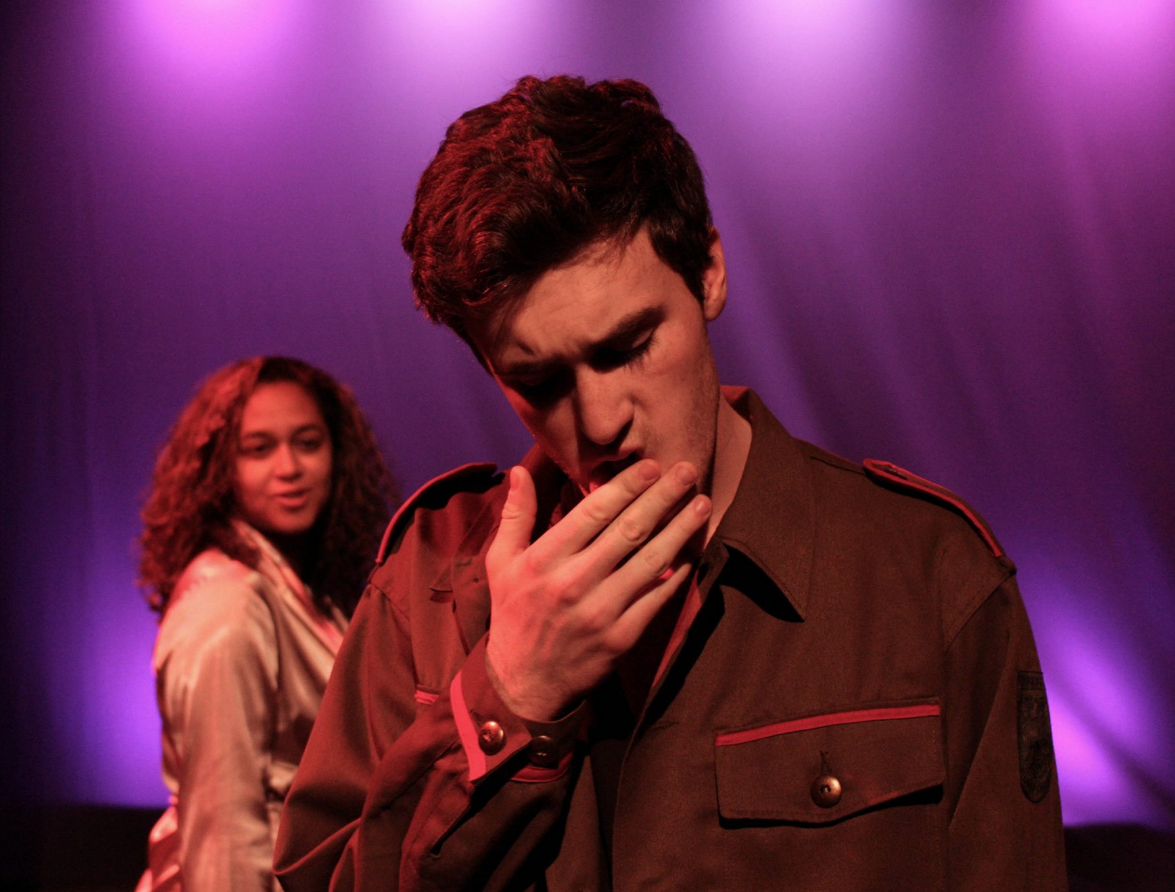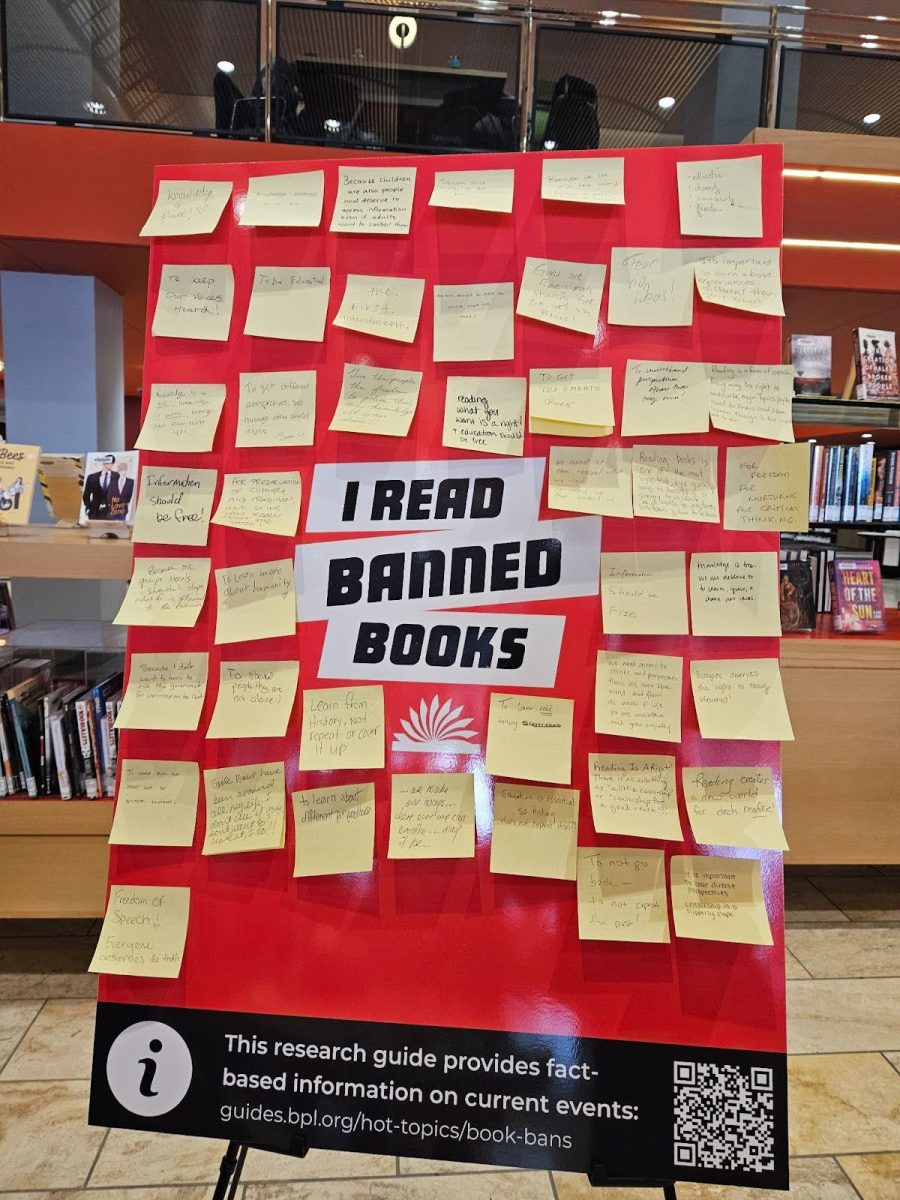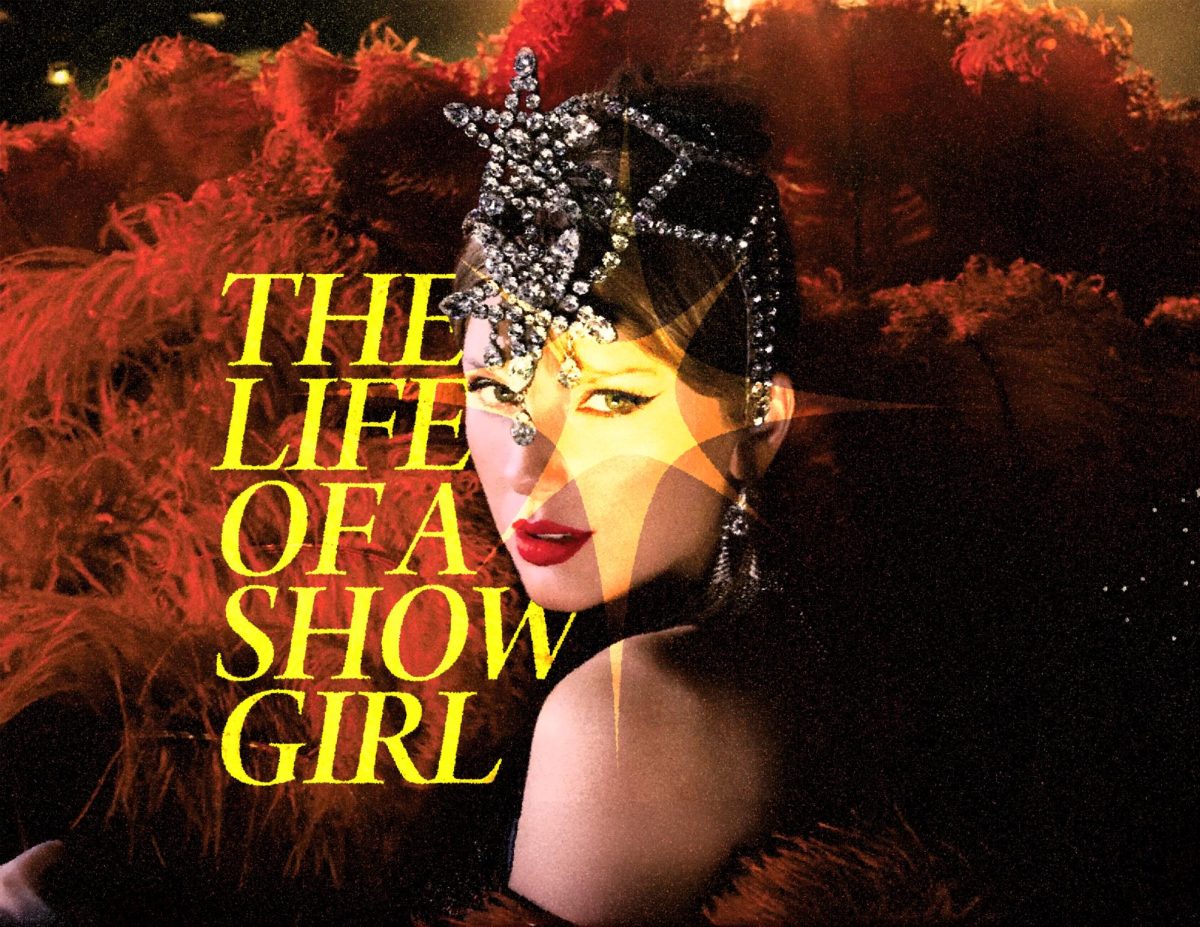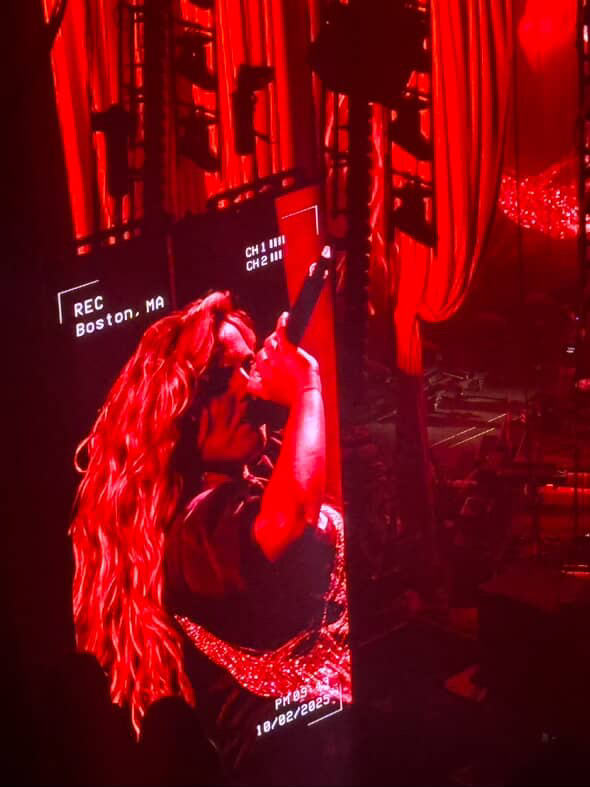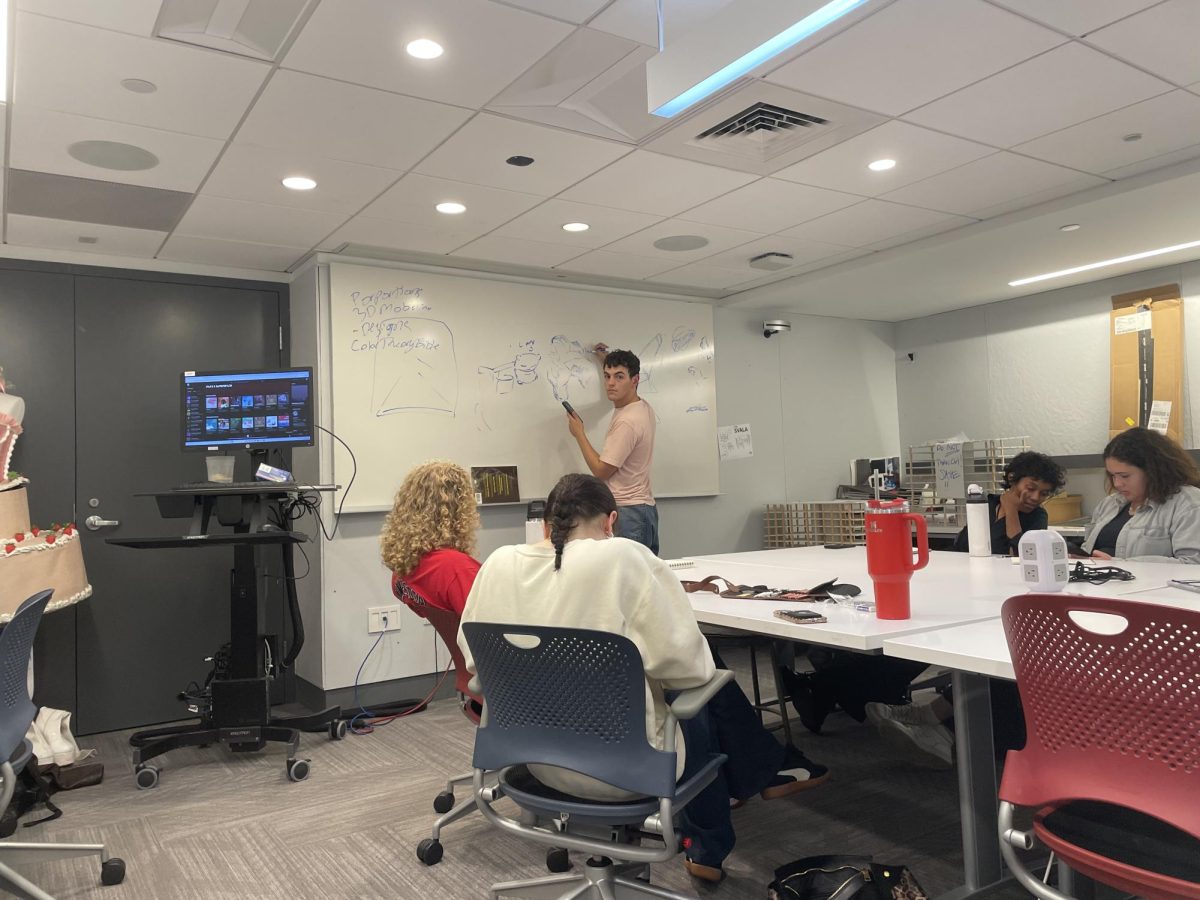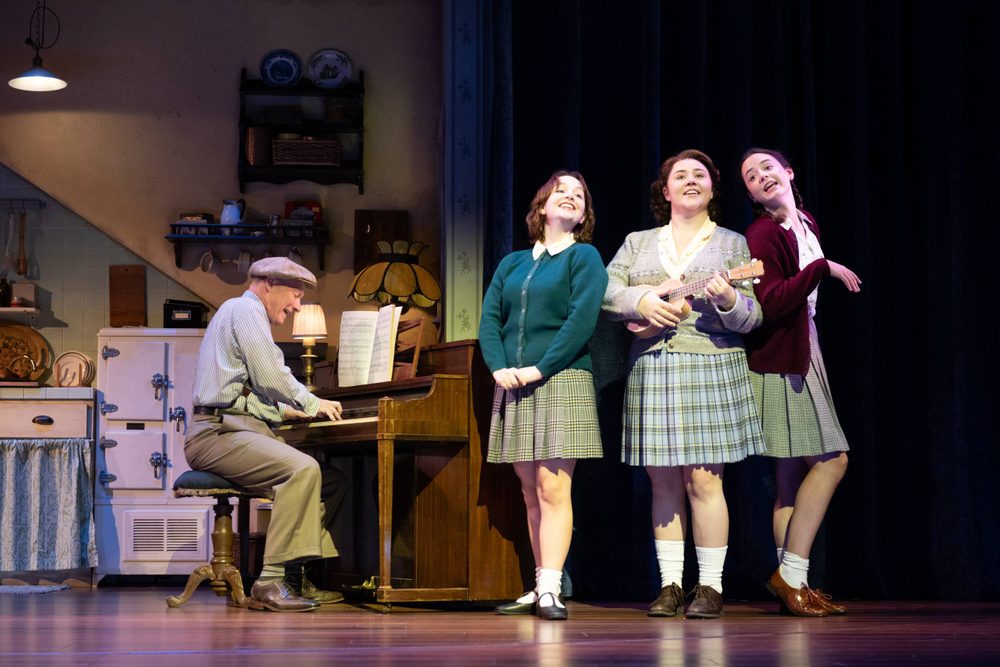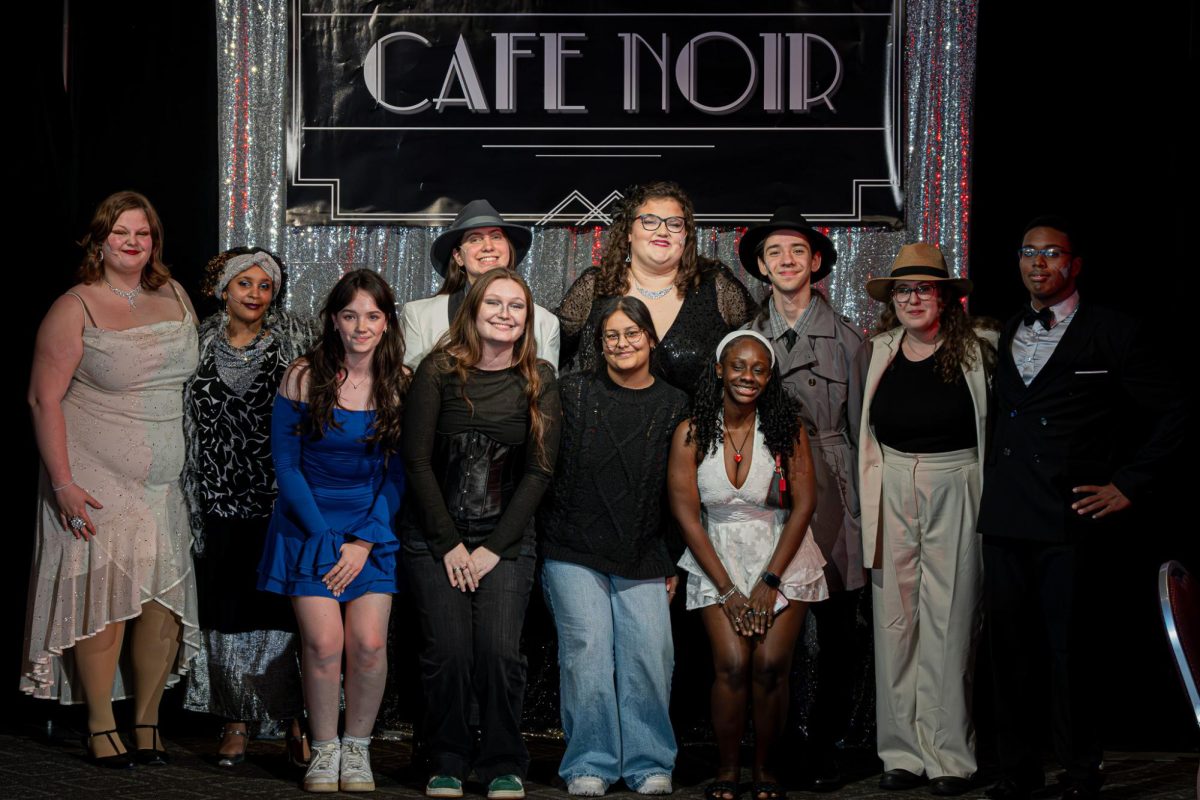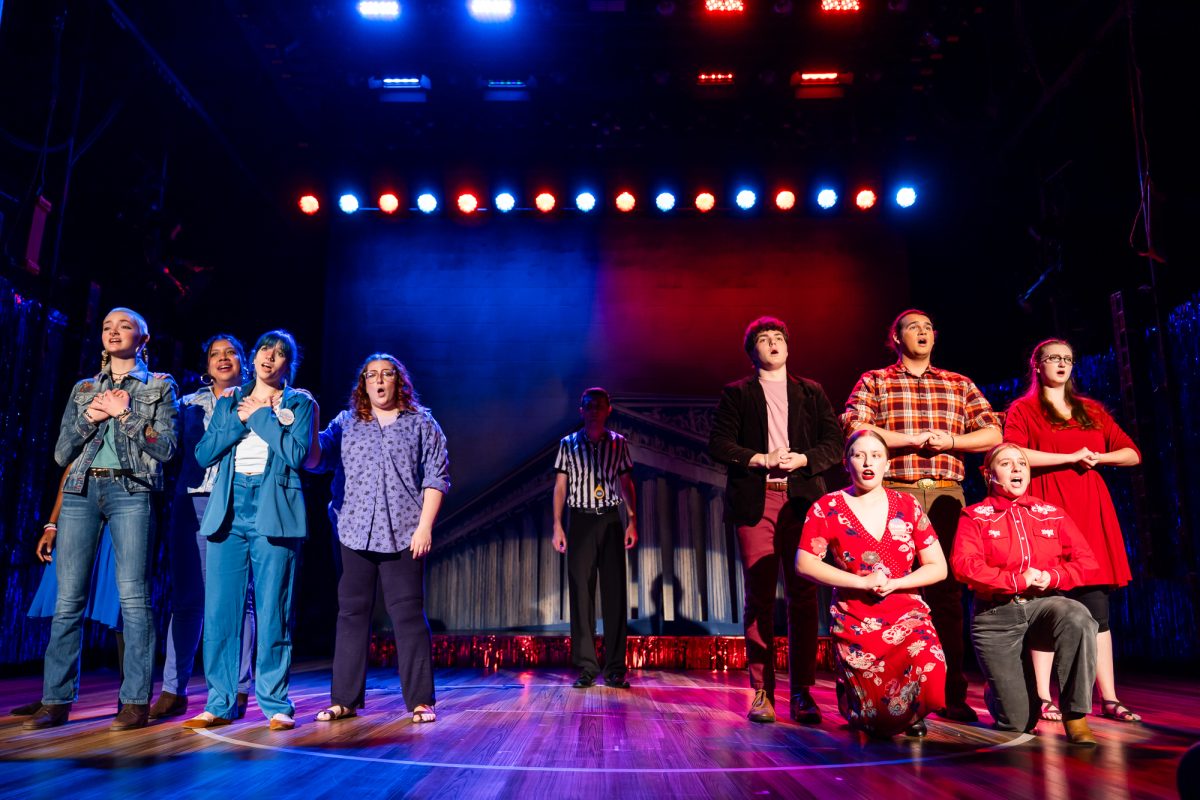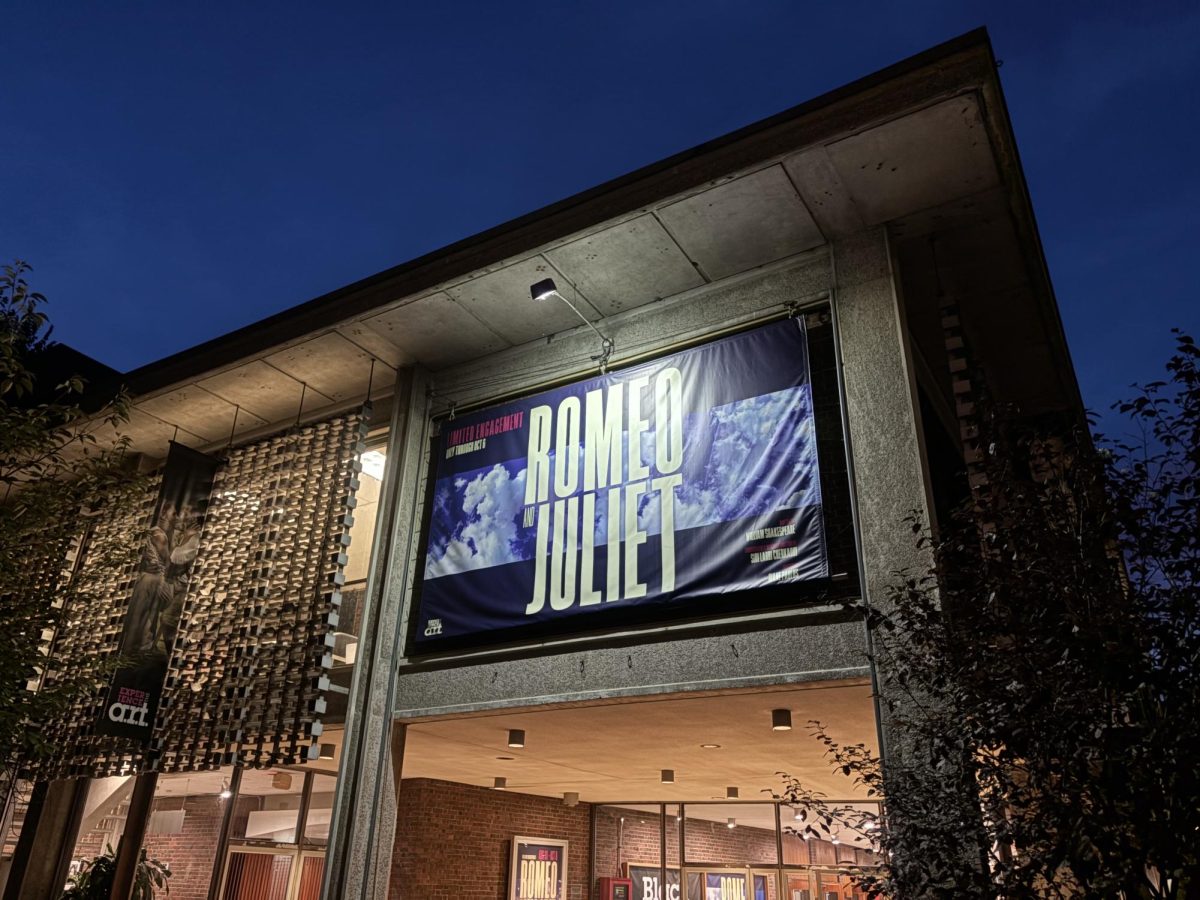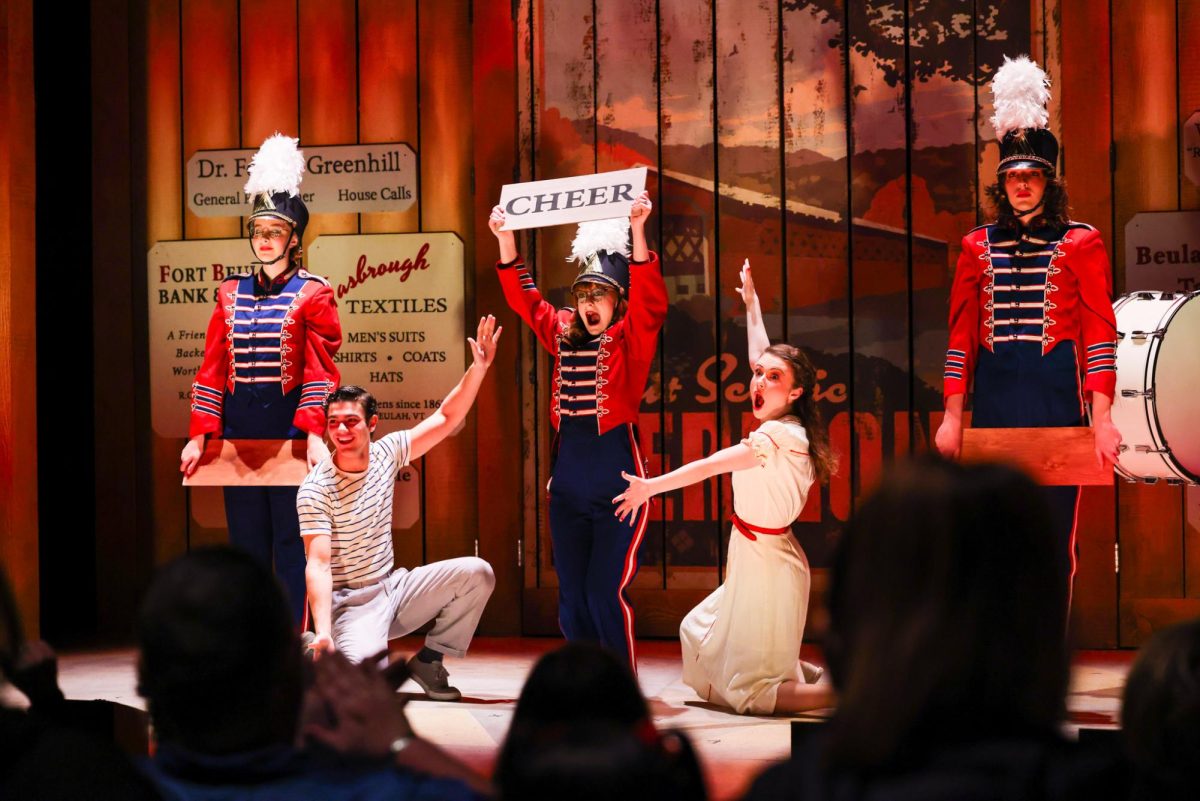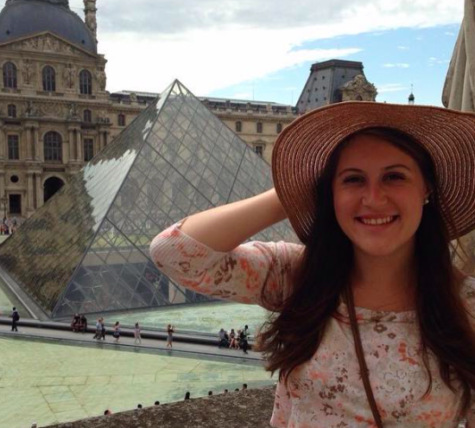It takes an incredible amount of creativity and imagination to be able to create an original play. It’s easy to succumb to performing yet another rendition of a Shakespeare tragedy or explore Henrik Ibsen’s realism. On it’s own, writing and directing in the theater is a feat in and of itself, but it is a completely separate ordeal when you try to make said play interesting and entertaining to audiences. Linnea Rose and Suffolk University’s own senior theatre major Andrew Bourque, managed to do both in their recent production of “Fractured Inferno.” Brought to life within the walls of the Sullivan Theater, the hour-long play was an intellectual mashup that combined both the storylines from the literary classic, “Dante’s Inferno,” and warped tales from the Brothers Grimm.
Portrayed as one man’s very long and confused journey, the storyline follows Michael, played by freshman theatre major Liam Grimaldi who is guided by a mysterious ally named Gabriel, played by sophomore theatre major Michael Greene. Those who are invested in Christianity and understand biblical references will be able to appreciate the subtle, and at times not-so-subtle jabs at what happens in the afterlife.
Gabriel, in Abrahamic religions, is an angel who acts as God’s messenger. In various biblical texts, he is depicted as someone who interprets dreams and reveals information to those seeking guidance. In this instance, Gabriel acts as Michael’s guide through the nine circles of hell: limbo, lust, gluttony, greed, anger, heresy, violence, fraud and treachery. Gabriel is known to stand in the presence of God, and therefore knows all about his power and routinely cites psalms and passages from the bible during the performance in order to provide insight to the activity occurring within each circle.
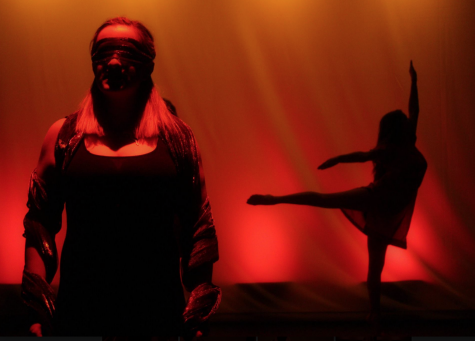
The performance begins with a few rows of people standing in what appears to be organized lines similar to that of a military regiment. They are all dressed in army green and appear to be staring off into the distance. There is no sound, no movement, no kind of indication as to what is happening until a man, Michael, appears to snap out of this trance and voices his confusion and questions the whereabouts of his son, effectively breaking the silence.
This circle is undoubtedly the first circle of hell, limbo. Argued across spiritual belief systems, this space has been referred to as an area of nothingness, purgatory, the Department of Motor Vehicles. In religious belief systems, purgatory is a space for those who have not been assigned to Heaven or hell. It is here where Michael and Gabriel first meet, and Gabriel calmly tells Michael that he must start a journey across the remaining circles in order to locate his son.
The play itself toted numerous biblical references and is suited for those who keep up with popular culture and classic fairy tales. The allusions to stories like Cinderella and Hansel and Gretel, paralleled with psalms and readings from the Book of Timothy proved to be not only educational but also entertaining.
Gabriel cited Luke 12:15 during the scene revolving around the circle of hell identified as greed, “Then he said to them, ‘Watch out! Be on your guard against all kinds of greed; life does not consist in an abundance of possessions.’” In this particular scene, Princess Cinderella has taken over the kingdom and seems to answer that lingering question at the end of the classic Disney movie, “but what happens to Lady Tremaine and the wicked step-sisters?” Shown through body language and insinuating dialogue, it becomes clear that the trio has been enslaved by Cinderella out of spite and pettiness.
When the pair stumble upon this situation, they are faced with one of many depictions of greed. In this case, greed is personified by taking on the image of what was once a kind and sweet figment of Walt Disney’s imagination. It shows the true power of the emotion, and how greed and selfishness can go hand in hand.
For Cinderella, a girl who had nothing and then was immediately given everything, it’s easy to see how such power went to her head. Perhaps acting as a metaphor for remaining
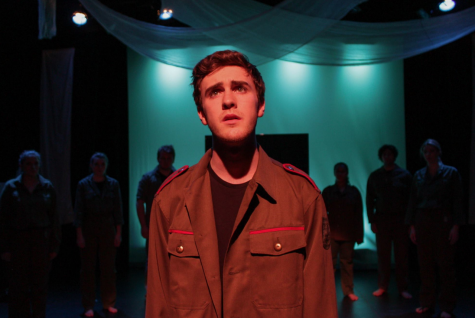
humble and kind no matter your social status, this powerful scene resonated within the four walls of the black box theater.
Across the nine circles of hell, the audience comes to learn more about Michael and the reason for this journey. It comes to light that his wife and son have lived complete lives without him due to his infidelity within his marriage. After cheating on his wife and leaving his family due to shame, the play acts as his reflection on his life and the decisions that led him to this point.
Perhaps this play acts as a reminder not to cheat on your significant other. Perhaps it acts as a reminder to make purposeful decisions that will benefit all of those in which that decision will potentially affect. The beauty of creating original content is that the interpretation is left to the viewers, it’s open-ended and fresh and has limitless potential to become something that will be analyzed and deciphered for years to come.


